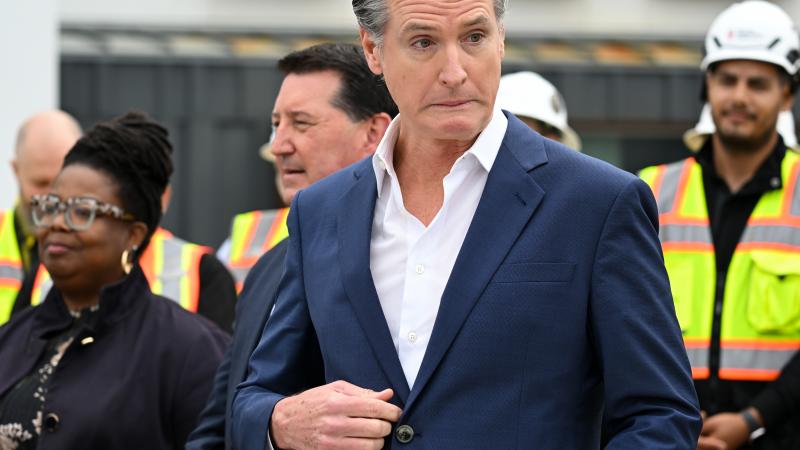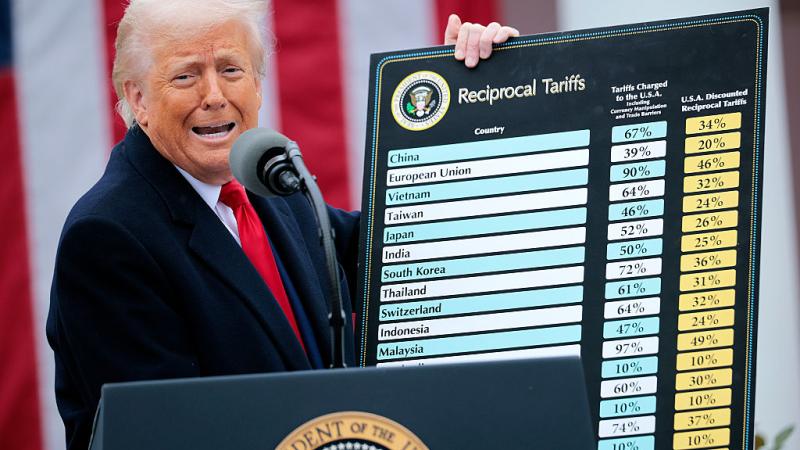IMF says global economy to slow as Trump re-orders global trade with tariffs
The IMF report projected global growth will reach 2.8% this year and 3% next year, a cumulative downgrade of about 0.8 percentage points relative to the IMF's January update.
President Donald Trump's tariffs have put the world economy on a path for slower growth this year, according to the International Monetary Fund.
Pierre‑Olivier Gourinchas, IMF's chief economist, said Tuesday the global economy is entering a new era after President Donald Trump announced and then paused a slate of tariffs on imports this month. Trump paused the higher tariffs for 90 days, but kept a 10% baseline duty on imports and a 25% tariff on foreign automobile and auto parts.
"We are entering a new era as the global economic system that has operated for the last 80 years is being reset," Gourinchas said. "Since late January, many tariff announcements have been made, culminating on April 2, with near universal levies from the United States and counterresponses from some trading partners. The U.S. effective tariff rate has surged past levels reached more than 100 years ago, while tariff rates on the U.S. have also increased."
Trump's tariffs – and the response to them – created uncertainty that has been difficult for businesses to manage.
"Beyond the abrupt increase in tariffs, the surge in policy uncertainty is a major driver of the economic outlook," Gourinchas said. "If sustained, the increasing trade tensions and uncertainty will slow global growth significantly."
The IMF report projected global growth will reach 2.8% this year and 3% next year, a cumulative downgrade of about 0.8 percentage points relative to the IMF's January update.
Under an alternative path that excludes the April tariff announcements, global growth would have seen a modest downgrade to 3.2% this year. The tariff pause, even if extended permanently, brings a similar growth outlook as a reference forecast, 2.8%, even if some highly tariffed countries could benefit, Gourinchas said.
"These trade tensions will greatly impact global trade," Gourinchas said.
In the United States, Gourinchas said "the tariffs represent a supply shock that reduces productivity and output permanently and increases price pressures temporarily."
He further noted: "Risks to the global economic have increased and are firmly to the downside."
Trump has promised tariffs will make the U.S. wealthy, bring back manufacturing jobs lost to lower-wage countries in decades past and shift the tax burden away from U.S. families.
A tariff is a tax on imported goods. The importer pays the tax and can either absorb the loss or pass the tax on to consumers in the form of higher prices.
Critics argue the tariffs will hurt the economy and the nation's trading relationships abroad and that costs will be passed on to American consumers. Trump and his backers have said tariffs would cause temporary pain but would also lead to a new wave of domestic manufacturing and raise federal revenue.













